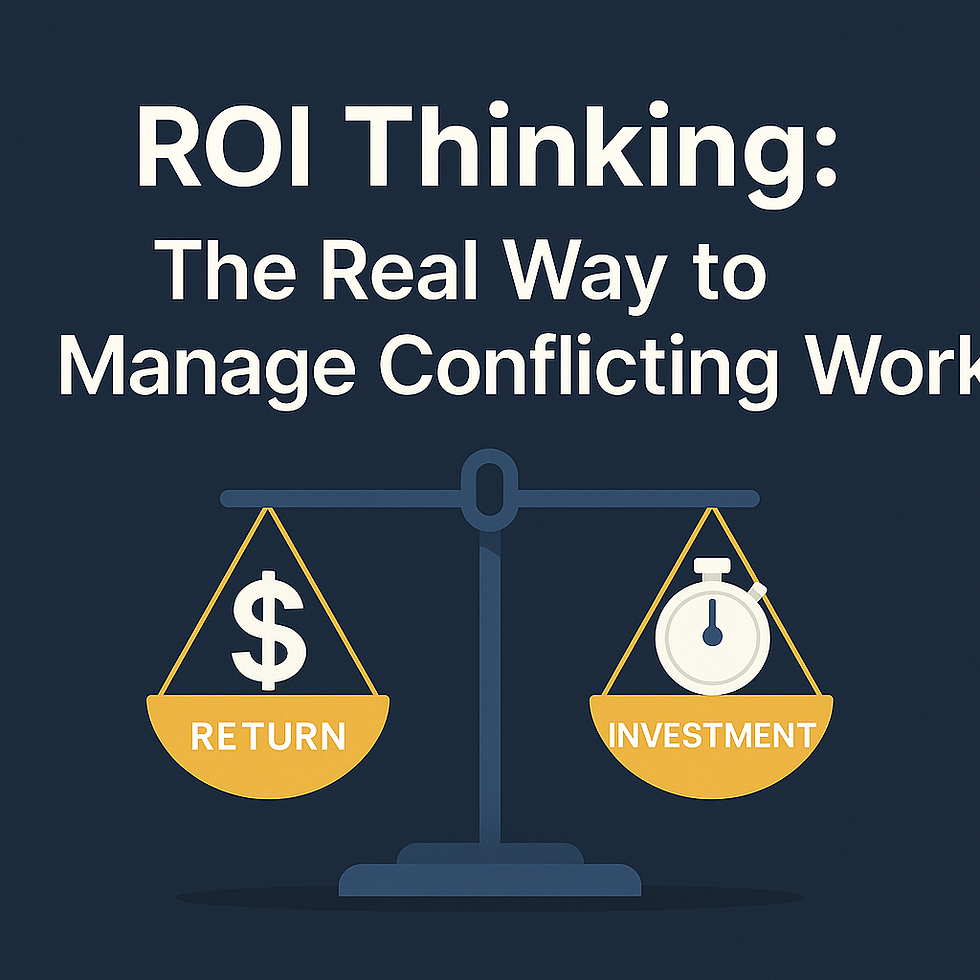The Five Needs of Every Healthy Team: A Raw, Usable Analogy That Actually Holds
- Admin
- Jun 21, 2025
- 4 min read
Updated: Jun 30, 2025

There's a sea of writing out there about team culture, dynamics, psychological safety, and growth — but it’s fragmented.Everyone’s dissecting pieces, but no one puts it together in a way that clicks.
This isn’t just another take on team dynamics.
What I’m laying out here is a lens — a mental model rooted in something as old as a civilization.
Every team, just like any society, needs five foundational things. Strip away all the jargon, and you’ll find every thriving society stands on:
Education
Employment
Security
Health
Food
Now flip that.
Your team? It's a miniature society. And it’s starving in at least one of these domains unless you, as a leader, do something about it.
Let’s go one by one — and let’s not lose our footing in abstraction.
1. Education → Skills (Hard & Soft, Not Uniform)
Let’s stop glamorizing "everyone being cross-skilled."What actually matters is baseline competency plus uniqueness.
You don’t build a great team by cloning smart people. You build one by mixing people who complement each other.
In Salesforce teams, this plays out like:
Sure, everyone should know Apex, LWC, flows, and deployment workflows.
But someone brings excellence in debugging integration logs.
Another? Deep empathy and user onboarding.
Another? The one who can break down problems into architecture diagrams on a Miro board like it’s second nature.
The hard skills are the minimum.The soft skills — learning pace, emotional clarity, patience under fire — define team character.
2. Employment → Role Fit and True Utilization
“Is this engineer doing what they were hired for?”That’s the bare minimum.
A Salesforce CPQ expert shouldn’t spend months cleaning data because someone upstream failed to define an object model.
And utilization isn’t just “busy work.” It’s alignment between:
The person’s skillset
The job at hand
And the scope that lets them express their edge
As a manager, if you’re not mapping people's unique strengths to the real job,You’re architecting mediocrity.
3. Security → Psychological Safety + Organizational Truthfulness
Forget platitudes.
Security in a team means two things:
Can I speak freely without fear?
Do I trust that my org isn’t lying to me through omission?
People don’t leave for money.They leave when leadership is quiet when it should’ve been clear.
Psychological safety is not just “speak up in retros.”It’s:
Interrupting during tense design discussions and being heard.
Disagreeing openly with senior folks without subtle retaliation.
Knowing that in a rough quarter, the leadership will tell the team the truth — not just redirect pressure downstream.
4. Health → Bonding, Stability, and Icebreaks That Aren’t Corny
Everyone measures team health with OKRs, Jira velocity, or YoY tech complexity.But none of that explains why some teams bounce back from failure while others implode.
What truly makes a team resilient?
Camaraderie.Bonding.Shared scars from real challenges.
And no — I’m not talking about fun Slack channels or scheduled “team connect” hours.
Real bonding happens:
When churn is low — so people have enough history to trust.
When technical crises expose each other’s true skill and commitment.
When “icebreakers” are cultural — not event-based. The kind where vulnerability is normalized.
Large orgs can afford assembly-line teams where people walk in and out like restaurant staff.But if you’re in a mid-sized or scaling org?Team memory and bonding is your muscle.
5. Food → Problem-Space Growth, Not Promotions
This is the one nobody talks about.
Food for a team isn’t salary, and it’s not even promotions.
It’s challenge. It’s work that expands year over year — different work, not necessarily harder.
If you’re a Salesforce manager, and your team is only doing ticket work year after year, here’s what “feeding them” looks like:
Introduce them to how upstream Kafka events can drive master data into Salesforce in real-time.
Let them design the nightly outbound feed pipeline to GCP that feeds analytics.
Hand them ownership of a cross-cloud object model and let them talk to the downstream data consumers.
That’s food.That’s growth.
Not “take more work.”Take different work.
And if you’re not looking for those expansion opportunities as a manager,You’re doing the team a quiet disservice.
The Summary Table: Society vs Team
Societal Need | Team Equivalent | What It Really Means |
Education | Skills | Baseline + uniqueness. Hard and soft. Don’t clone. |
Employment | Utilization | Let people do what they’re built for. |
Security | Safety & Truth | Can I speak? Can I trust? |
Health | Bonding | Low churn + shared scars + honest fun |
Food | Scope Expansion | New problems, not just new people |
Every team is a miniature society.
If even one of these five needs—skills, role fit, psychological safety, bonding, or growth—is neglected, the whole system feels brittle. But when they’re nourished, your team doesn't just perform better—it becomes a place people want to stay and choose to grow in.
As a leader, you're not just managing engineers. You're architecting a culture. One built to last.



Comments